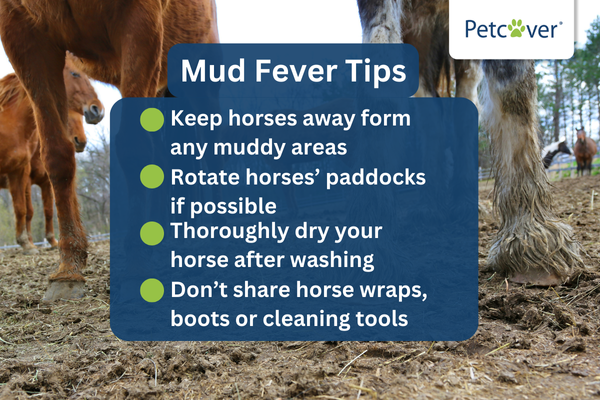How to buy a horse: a step-by-step guide
Ready to buy a horse? Learn the costs, care tips, and steps to find your perfect equine partner.
Read more18 September 2024
Mud Fever (or Greasy Heel in it’s early stages) is most prevalent when conditions are wet and damp. With the rainy days of autumn and winter on the way to the bottom half of Australia it is important that you familiarize yourself with the realities of this condition that affects horses in wet and damp areas.
Greasy heel is the result of a dermatitis or infection which is situated below the rear of the fetlock and the heel. Once this infection has moved up to the canon area it is referred to as mud fever.
Greasy heel is caused by a bacterial infection of the skin surrounding the heel. Horses that are in an environment where their feet are constantly wet are most likely to suffer from this disease. This is because the moisture rids the horse’s skin of protective oils and allows bacteria to enter through the softened or broken skin.
The skin at the rear of the fetlock becomes soft, swollen and pink and oozes a sticky serum forming scabs. Once these scabs form the skin begins to crack open. The inflammation and infection is due to the same bacteria responsible for Rain Scald.

This blog was written by Petcover Equine Insurance specialising in equine and equine industry insurance. Our practices keep the role that insurance plays in responsible equine ownership and the health of the animal at the forefront. For tips to keep your horse or pony healthy, make sure you follow us on Facebook.